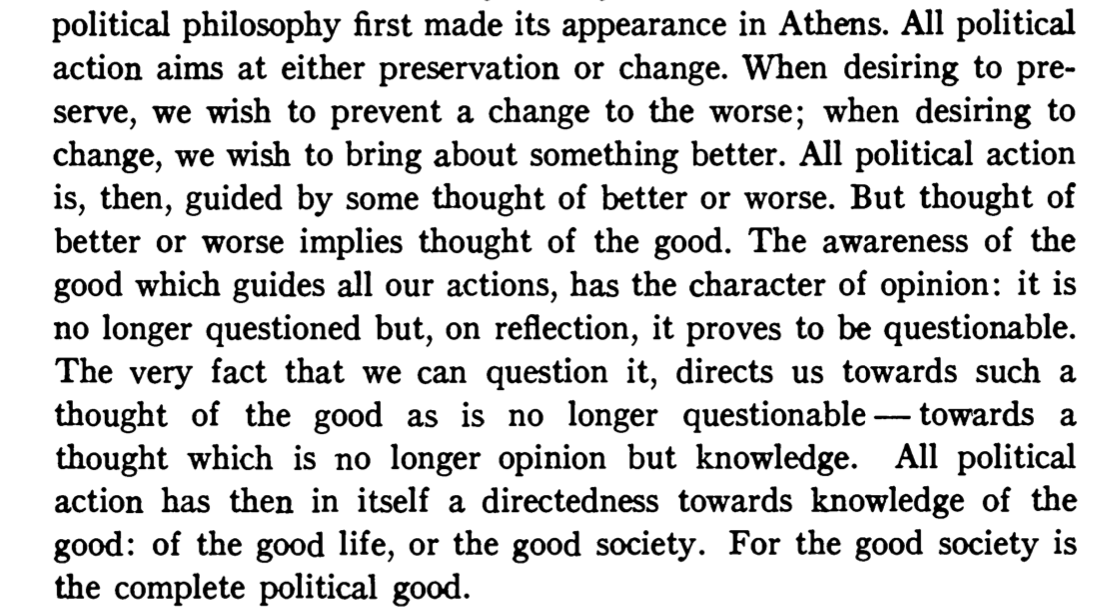
Leo Strauss, arguing in "What is Political Philosophy?" that the most fundamental meta-political good is the ability to distinguish knowledge from opinion. 

The Dude to Socrates:
In taking aim at epistemology, postmodernism destroys the ability to do classical political philosophy.
Yet in replacing the knowledge/opinion binary with interpretation it makes room for something else.
Yet in replacing the knowledge/opinion binary with interpretation it makes room for something else.
The critique of postmodernism, advanced by some of Strauss's students (e.g., Bloom), is that if you can't uphold a distinction between knowledge and opinion, you're a nihilist or a relativist.
But the contribution of hermeneutics, which we get from Heidegger and Gadamer, is that while philosophy can no longer produce knowledge, it can have better and worse opinions. The good remains a regulative ideal, even if it's a mirage, a shifting goal-post.
The standards by which we judge goodness and the standards by which we judge our standards of judgment are interlinked and dynamic.
While we don't know what good is, we know that it's bad to make our judgments in a static condition.
While we don't know what good is, we know that it's bad to make our judgments in a static condition.
Philosophy emerges as the negative knowledge, the photographic negative, of what we know to be false.
This is the conclusion of Enlightenment critics, Adorno and Horkheimer:
"Philosophy exists because the chance to realize it has been missed."
The dream of philosophy is kept alive by the nightmare of a society that we know to be wrong even if we can't say why.
"Philosophy exists because the chance to realize it has been missed."
The dream of philosophy is kept alive by the nightmare of a society that we know to be wrong even if we can't say why.
But if we can't say why society is wrong other than on the basis of presumption or sentiment or opinion, then aren't we just making another faith claim? Isn't negative dialectic just another creed, another "superstition"?
Perhaps. But, in the same way that Descartes found a foundation in his doubt, Adorno finds a foundation in his.
My ability to challenge my own philosophy, my skepticism that goes all the way down, itself proves the durability of philosophy.
My ability to challenge my own philosophy, my skepticism that goes all the way down, itself proves the durability of philosophy.
The search for knowledge, like Quixote's quest, is kept alive by signs, signs which will only be vindicated as reasonable if we find what we are looking for. And if it turns out that we are mad, so be it. For we would be mad no matter what.
I elaborate on this in my newsletter. For paying subscribers, you'll get my thoughts on @DouthatNYT's new book, The Deep Places. Chronic Lyme is a powerful metaphor for political problems that Classical Political Philosophy can't answer.
whatiscalledthinking.substack.com/p/is-political…
whatiscalledthinking.substack.com/p/is-political…
• • •
Missing some Tweet in this thread? You can try to
force a refresh




